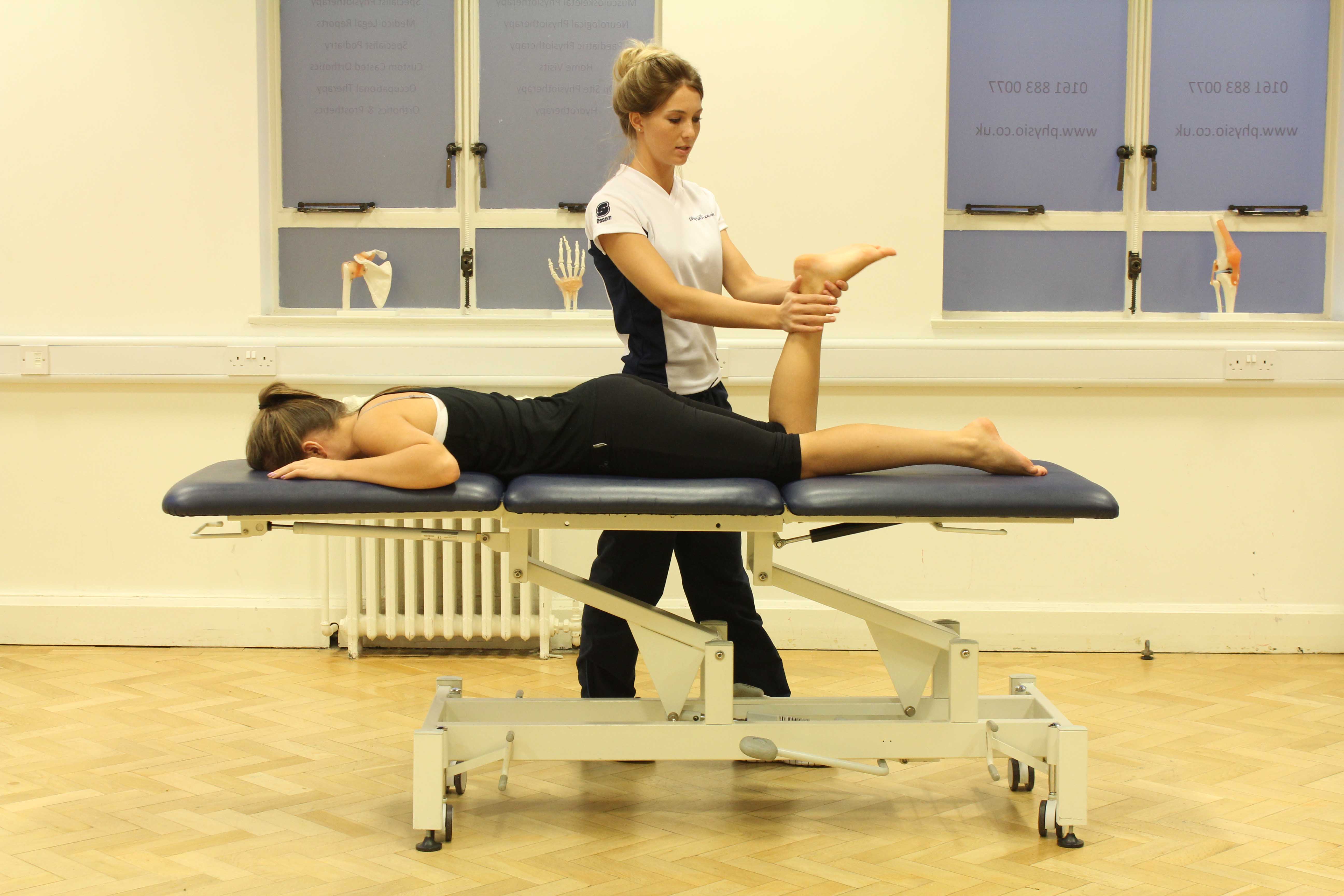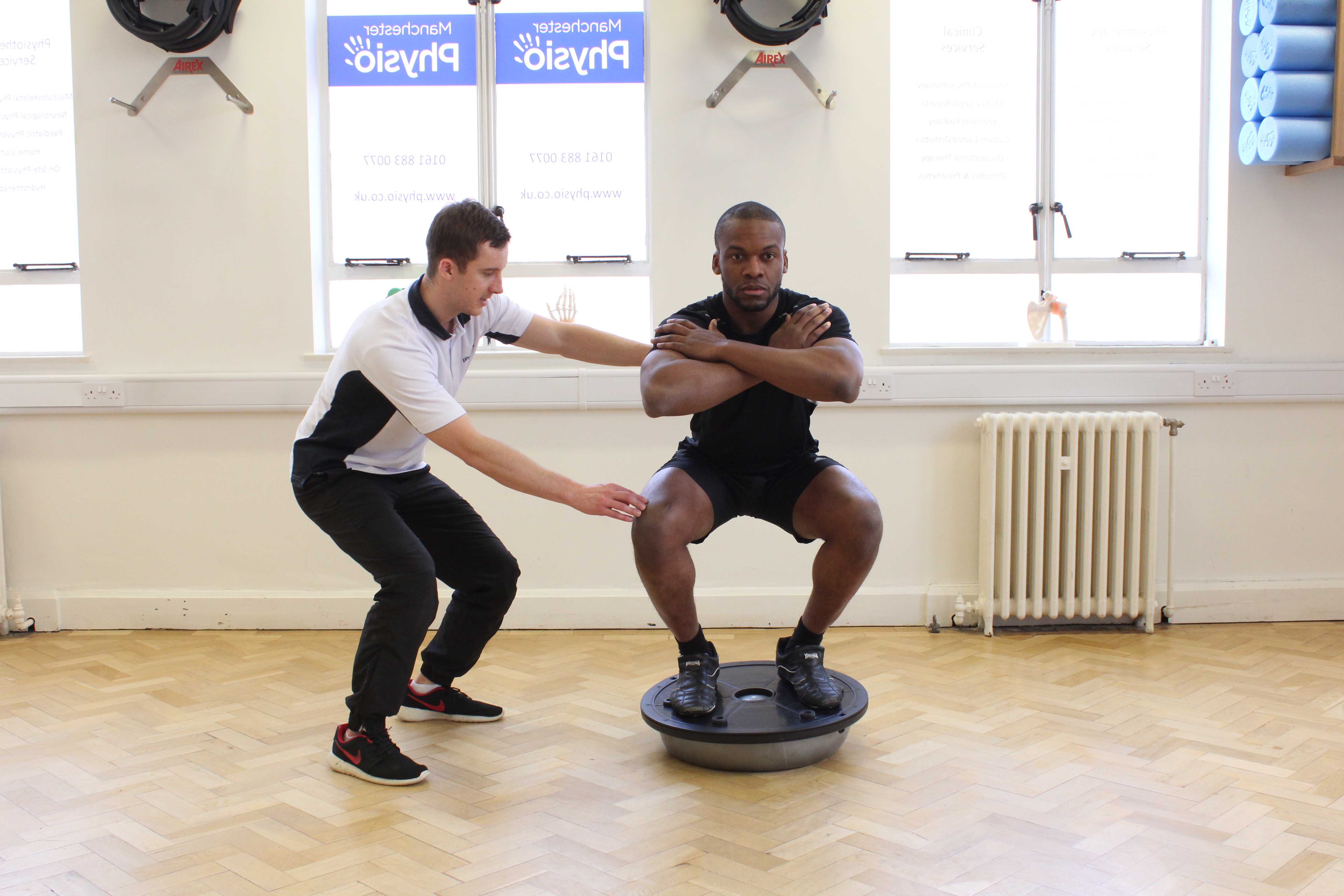What is sesamoiditis?
Sesamoiditis is an inflammation around the sesamoid bone under the ball of the foot which is often accompanied with swelling. The sesamoid bones are small pieces of bone underneath the hallux (big toe they act as pivots for the tendons which flex (bend) the hallux. The two sesamoid bones are named medial and lateral. The medial sesamoid bone is where inflammation occurs most commonly, as this is where the impact of walking can occur. This is also the main attachment site for the flexor tendons which pull the big toe down during the gait cycle. Sesamoiditis causes pain, making it painful to walk.
Sesamoiditis can cause great discomfort when walking and can alter a person’s gait pattern. Sesamoiditis occurs most commonly in young active people as they are continuously applying pressure to this part of the foot.
 Above: Mobilisations and stretches of the foot and ankle by specialised therapist
Above: Mobilisations and stretches of the foot and ankle by specialised therapistWhat causes sesamoiditis?
Sesamoiditis is inflammation of the sesamoid bones. Inflammation can be caused by:
- Osteoarthritis
- Osteoporosis
- Sudden extension (straightening) of the hallux
- A large force extending the hallux
- Regular walking in high heels
- Large sesamoids
- High medial arch of the foot
- Over-pronation of the foot
What are the symptoms of sesamoiditis?
Symptoms of sesamoiditis usually have a gradual onset and can include:
- Pain at the base of the hallux on walking, especially when pushing off the toes
- Pain on weight bearing
- Reduction in pain on non-weight bearing
- Pain with pressure on area
- Swelling
Physiotherapy for sesamoiditis
Sesamoiditis can be treated with a course of physiotherapy. The physiotherapists at Physio.co.uk are experienced at treating Sesamoiditis and helping to relieve the symptoms of sesamoiditis and return the individual to previous function. Some of the treatments may include:
- Ice/cold therapy
- Electrotherapy
- Strengthening exercises
- Stretching exercises
- Advice on current activity and gradual return to previous activity
- Advice on footwear
 Above: Stability training for the foot and ankle supervised by an experienced physiotherapist
Above: Stability training for the foot and ankle supervised by an experienced physiotherapistCan sesamoiditis cause any long-term effects?
In the majority of cases physiotherapy can effectively treat and rehabilitate sesamoiditis. If the injury becomes frequent then insoles may be needed for long term use and physiotherapy can help to reduce symptoms.
Summary
Sesamoiditis is an inflammation on the sesamoid bone under the ball of your foot. It becomes inflamed and swollen due to an overuse injury mechanism. There are a variety of treatment options which are available from the experienced physiotherapists at Physio.co.uk. Treatment will depend upon their clinical judgement from the initial assessment and the presenting symptoms. If you require further information or an appointment please contact us or call 0330 088 7800.

 0330 088 7800
0330 088 7800

































